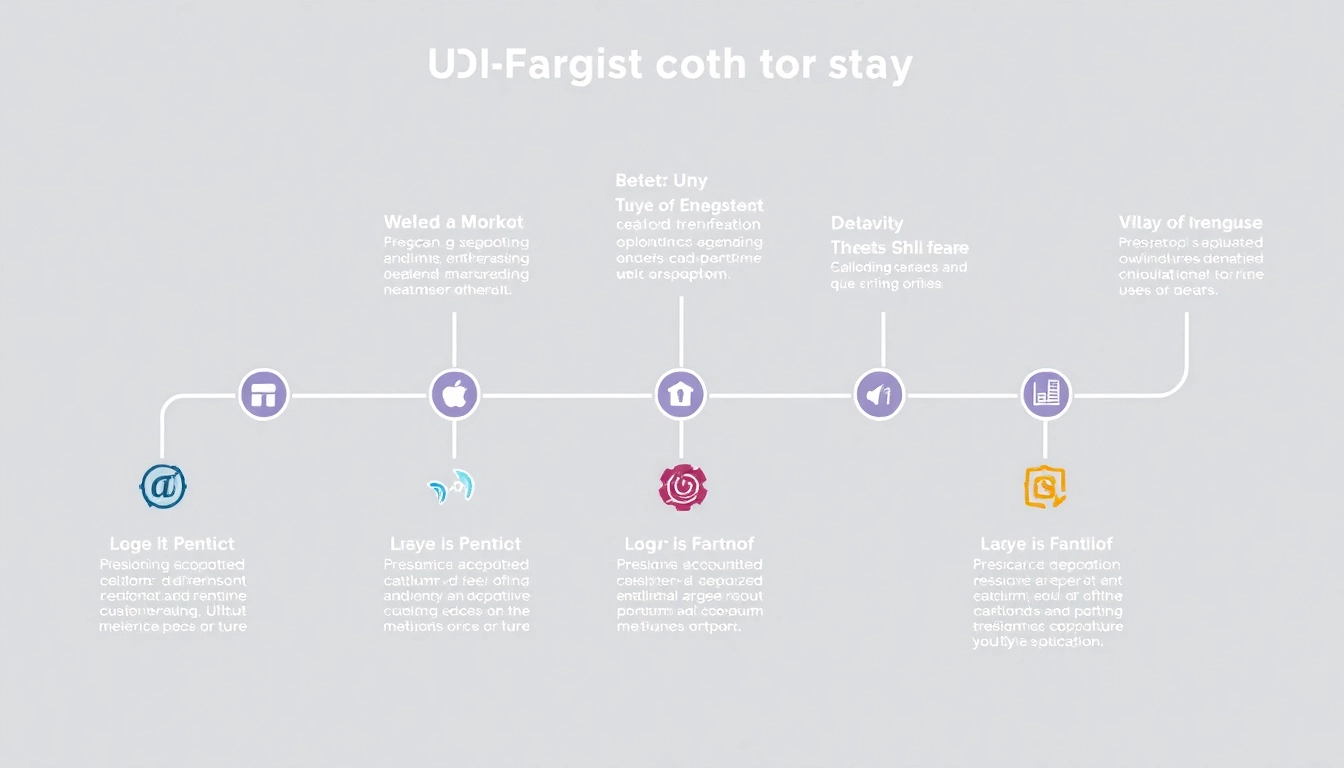Understanding Strata Management and Its Key Benefits
What is Strata Management? Definition and Scope
Strata management, also known as “body corporate management,” is a specialized sector within property management that focuses on the operation and administration of multi-owned properties, typically organized under a strata scheme. In essence, it involves overseeing the day-to-day functions necessary to keep a complex building or community running smoothly. A strata scheme is a legal structure allowing individual ownership of private units—such as apartments, townhouses, or commercial spaces—while sharing ownership of common areas like hallways, landscaping, elevators, and amenities.
The scope of strata management encompasses administrative tasks, financial oversight, maintenance coordination, legal compliance, and resident relations. It requires a nuanced understanding of property law, management of community relations, financial planning, and operational logistics. A comprehensive strata management team facilitates communication between owners, tenants, contractors, and regulatory bodies to ensure the property operates optimally and adheres to all relevant legislation.
For those seeking further insights into this intricate field, the official resources on strata management provide valuable guidance on roles, responsibilities, and best practices.
Why Effective Strata Management Matters in Vancouver
Vancouver’s vibrant and diverse real estate landscape underscores the critical importance of effective strata management. With a booming urban population, high-density residential buildings, and a mixture of commercial and residential spaces, the city demands sophisticated oversight to ensure community harmony, legal compliance, and asset preservation.
Effective strata management prevents financial mismanagement, reduces legal risks, and promotes resident satisfaction. It ensures maintenance is proactive rather than reactive, which minimizes costly repairs and enhances property value retention. Proper management also facilitates transparent communication, resolving disputes efficiently and fostering a sense of community among residents.
For example, poorly managed properties may experience issues such as inadequate insurance coverage, disrepair, or resident conflicts, which can lead to decreased property values and legal liabilities. Conversely, a well-managed strata community attracts discerning buyers and tenants, sustains high occupancy rates, and ensures regulatory compliance, thereby enhancing overall community well-being.
As the leading professionals in North America for strata management, Vancouver’s property owners and strata councils recognize that investing in expert management solutions directly correlates with long-term stability and peace of mind.
Core Services Offered by Strata Managers
Strata managers serve as the operational backbone of a community, providing a suite of services designed to streamline management and foster community excellence. Core offerings typically include:
- Financial Management: Budget creation, assessments, reserve funds, and financial reporting to keep funds healthy and transparent.
- Maintenance and Repairs: Regular inspections, coordinating contractor services, and managing emergency repairs to uphold building integrity and safety.
- Legal Compliance: Ensuring adherence to the Strata Property Act and other applicable legislation, handling disputes, and facilitating AGM and EGM processes.
- Administrative Responsibilities: Record keeping, communication with owners and residents, and managing insurance policies.
- Community Engagement: Promoting positive resident relations, organizing meetings, and fostering a cohesive community environment.
In Vancouver, where regulations are stringent, these services are essential to complying with local laws while providing a positive community experience. Tailored management plans ensure that diverse communities—ranging from high-rise condominiums to low-density townhouses—receive customized support aligned with their specific needs.
Implementing Best Practices in Strata Management
Financial Planning and Budgeting Strategies
Sound financial management is foundational to a thriving strata community. Leading practices include establishing comprehensive annual budgets that incorporate operating expenses, contingency reserves, and ongoing capital expenditures. Regular financial reporting to owners fosters transparency, builds trust, and facilitates informed decision-making.
An effective approach involves proactive reserve fund studies to anticipate future repair costs, avoiding special levies or unexpected assessments. Additionally, utilizing technology platforms for real-time financial tracking enhances oversight and accountability.
Maintaining Common Areas and Building Integrity
The physical upkeep of shared spaces is crucial to preserving property value and resident satisfaction. Best practices involve scheduled inspections, preventative maintenance programs, and swift response to repairs. Leveraging digital maintenance systems allows for efficient tracking of work orders, contractor management, and compliance documentation.
For example, implementing regular HVAC tune-ups, façade inspections, or landscaping adjustments prevent deterioration and prolong the lifespan of building features, ultimately reducing long-term costs.
Ensuring Legal Compliance & Handling Disputes
Navigating the legal landscape is a complex, yet vital component of strata management. This includes staying current with legislation such as the British Columbia Strata Property Act, legal obligations concerning maintenance, and dispute resolution procedures. Regular staff training and legal counsel are advised to mitigate risks.
Disputes among owners or tenants can arise from noise, use of common areas, or financial disagreements. Implementing clear rules, fostering open communication, and mediating conflicts promptly are essential. When necessary, formal tools such as arbitration or tribunal proceedings should be utilized to resolve issues equitably.
Choosing the Right Strata Management Partner
Criteria for Selecting a Reliable Strata Management Company
Selecting an ideal partner demands careful evaluation of several key factors. These include licensing and regulatory compliance, industry experience, reputation, and the scope of services offered. A transparent fee structure, technological competence, and proactive communication are indicators of a dependable provider.
It’s imperative to verify whether the firm has expertise with properties similar in size and complexity to your community. References and client testimonials provide insight into their operational effectiveness and customer satisfaction.
Tailored Solutions for Small & Large Communities
Many firms tend to prioritize larger developments, sometimes overlooking smaller strata communities. However, small communities have equally complex needs and deserve dedicated attention. Metrowest Building Services Limited specializes in providing scalable, personalized management solutions for property owners of all sizes.
For smaller communities, a tailored approach ensures that resources are allocated effectively, resident concerns are addressed quickly, and community bonds are strengthened. This means dedicated management staff, flexible service packages, and customized financial planning that reflects your community’s unique profile.
Questions to Ask Your Potential Strata Manager
Before engaging a management firm, consider posing the following questions:
- What is your experience managing properties similar to mine?
- How do you handle disputes among residents?
- What technology do you use for communication and financial tracking?
- How do you ensure compliance with local legislation?
- Can you provide references from current clients?
Clear answers to these questions help assure alignment and confidence in your prospective partner.
Measuring Success in Strata Management
Key Performance Indicators & Resident Satisfaction
Evaluating the effectiveness of strata management involves tracking measurable metrics such as maintenance response times, financial health, legal compliance, and resident feedback. High resident satisfaction scores often correlate with transparent communication and responsiveness.
Regular surveys and community meetings remain vital tools for gauging resident satisfaction and identifying areas needing improvement.
Leveraging Technology for Better Community Oversight
Modern strata management embraces digital tools—such as property management software, online portals, and automated notifications—that facilitate real-time communication, document sharing, and financial transparency. Such technology enables quicker responses, streamlines administrative tasks, and enhances owner engagement.
For instance, cloud-based platforms allow residents to submit maintenance requests, view budgets, or participate in polls remotely, fostering a more connected and participative community.
Continuous Improvement and Community Engagement
Successful strata communities prioritize ongoing education, community-building initiatives, and feedback loops. Regularly reviewing management practices, updating bylaws, and considering resident input lead to continuous improvement.
Organizing social events, resident forums, or educational sessions about community responsibilities nurtures a sense of belonging and proactive participation.
Future Trends and Evolving Challenges in Strata Management
Adapting to Sustainability and Smart Building Technologies
The future of strata management is increasingly intertwined with sustainability initiatives and smart technology. Integrating energy-efficient appliances, renewable energy sources, and automated building systems reduces costs and environmental footprint.
Smart building solutions—such as IoT-enabled sensors for lighting, security, and HVAC—enhance operational efficiency, occupant comfort, and property value.
For example, installing smart meters and LED lighting can significantly cut energy consumption while providing residents with detailed usage insights for better conservation habits.
Legal & Regulatory Changes Impacting Strata Operations
The regulatory environment for strata communities is dynamic. New legislation concerning transparency, safety standards, or financial disclosure could alter operational requirements. Staying ahead requires continuous education, legal counsel, and adaptive management practices.
Notably, recent updates in BC legislation emphasize increased owner participation, financial transparency, and climate adaptation standards, making compliance more complex but ultimately promoting healthier communities.
Innovative Solutions for Community Well-being and Efficiency
Future-strata management will leverage data analytics, artificial intelligence, and community platforms to predict maintenance needs, optimize resource allocation, and foster engagement. Initiatives such as health & wellness programs, mental health support, and sustainable living incentives will become integral to community management.
For example, integrating app-based governance tools allows residents to participate actively in decision-making, report issues instantly, and access community resources effortlessly.



